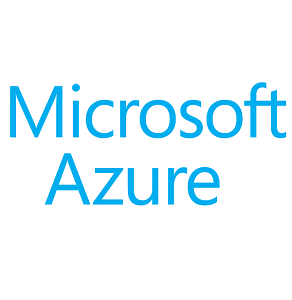
Tijdens de Microsoft Azure Architect Design AZ-304 cursus krijg u lessen over ontwerpoverwegingen met betrekking tot logboekregistratie, kostenanalyse, authenticatie en autorisatie, beheer, beveiliging, opslag, hoge beschikbaarheid en migratie. Deze rol vereist beslissingen op meerdere gebieden die van invloed zijn op een algehele ontwerpoplossing.
In this module, you will learn how to optimize costs from recommendations, breakdown costs by Azure Service, and download and review usage details.
Lessons
– Recommend Solutions for Cost Management
– Recommended Viewpoints for Minimizing Costs
After completing this module, students will be able to:
– Optimize with Azure Cost Management.
– Design with Cost in mind
– Optimize Costs from recommendations
In this module, you will learn about Azure Monitor, Azure Application Insights, and Azure Sentinel. You will be able to monitor Azure Resources with Azure Monitor and collect and analyze resource Logs for Azure.
Lessons
– Azure Monitoring Services
– Azure Monitor
After completing this module, students will be able to:
– Monitor Azure resources with Azure Monitor
– Collect and analyze Resource Logs for Azure resources
– Understand how Azure Sentinel collects data on the devices, users, infrastructure, and applications
In this module, you will learn to implement Conditional Access and Azure Multi-Factor Authentication and also be able to recommend an Authentication Methodology for Hybrid Identity.
Lessons
– Recommend a Solution for Multi-Factor Authentication
– Recommend a Solution for Single-Sign On (SSO)
– Five Steps for Securing Identity Infrastructure
– Recommend a Solution for a Hybrid Identity
– Recommend a Solution for B2B Integration
After completing this module, students will be able to:
– Plan for a MFA Deployment
– Understand Azure Active Directory Seamless Single Sign-On (SSO)
– Recommend an Authentication Methodology for Hybrid Identity
– Integrate with Identity Providers
In this module, you will learn how to provide Identities to services and understand the hierarchy of Management Groups and Subscriptions.
Lessons
– Infrastructure Protection
– Recommend a Hierarchical Structure for Management Groups, Subscriptions and Resource Groups
After completing this module, students will be able to:
– Recommend hierarchy of Management Groups and Subscriptions.
– Configure custom RBAC Role definitions and assignments
In this module, you will learn apply an Azure Policy, Identify non-compliant resources, and manage tag governance with Azure Policy.
Lessons
– Recommend a Solution for using Azure Policy
– Recommend a Solution for using Azure Blueprint
After completing this module, students will be able to:
– Organize Policies with Initiatives
– Manage Tag Governance with Azure Policy
– Provide guidance on Azure Blueprints
In this module, you will understand Azure Key Vault availability and redundancy, managed Identities for Azure resources. Also, learn about system-assigned Managed Identity and Azure VMs.
Lessons
– Recommend a Solution using KeyVault
– Recommend a Solution using Azure AD Managed Identities
After completing this module, students will be able to:
– Understand Key Vault authentication and authorization
– Understand Azure Key Vault availability and redundancy
– Understand how Blueprints differ from Resource Manager Templates and Azure Policy
In this module, you will be able to recommend the appropriate data store and recommend Azure SQL Database and Azure SQL Managed Instance Service tiers.
Lessons
– Select an Appropriate Data Platform Based on Requirements
– Overview of Azure Data Storage
– Recommend Database Service Tier Sizing
– Dynamically Scale Azure SQL Database and Azure SQL Managed Instances
– Recommend a Solution for Encrypting Data at Rest, Transmission, and In Use
After completing this module, students will be able to:
– Recommend Database Service Tier Sizing
– Recommend a Solution for Encrypting Data at Rest, Transmission, and In Use
– Understand Azure Data Lake Store and Azure Blob Storage containers
In this module, you will learn about data flows using Azure Data Factory and Azure Synapse Analytics architecture.
Lessons
– Recommend a Data Flow
– Recommend a Solution for Data Integration
After completing this module, students will be able to:
– Implement Azure Synapse Analytics
– Describe how data flows using Azure Data Factory
– Demonstrate hjow to use Azure Data Factory to load data into SQL Data Warehouse
In this module, you will learn about recommend a design a strategy for using tiered storage and manage tiered Storage using Azure tools.
Lessons
– Understanding Storage Tiers
– Recommend a Storage Access Solution
– Recommend Storage Management Tools
After completing this module, students will be able to:
– Recommend tools for working with Azure Storage
– Design for Azure Blob Storage access tiers
In this module, you will learn about solutions for site recovery capacity and site failover and failback. You will be able to recommend solutions for recovery in different regions.
Lessons
– Recommend a Recovery Solution for Hybrid and On-Premises Workloads
– Design and Azure Site Recovery Solution
– Recommend a Solution for Recovery in Different Regions
– Recommend a Solution for Azure Backup Management
– Design a Solution for Data Archiving and Retention
After completing this module, students will be able to:
– Recommend solutions for Azure hybrid and on-premises workloads that meets recovery objectives
– Recommend a solution for site recovery capacity
– Recommend storage types and methodology for data archiving
– Identify requirements for data archiving
In this module, you will learn about solutions for application and workload redundancy, including compute, database, and storage.
Lessons
– Recommend a Solution for Application and Workload Redundancy
– Recommend a Solution for Autoscaling
– Identify Resources that Require High Availability
– Identify Storage Tpes for High Availability
– Recommend a Solution for Geo-Redundancy of Workloads
After completing this module, students will be able to:
– Recommend a solutions for autoscaling
– Identify storage types for high availability
– Recommend a solutions for geo-redundancy of workloads
In this module, you will learn about the appropriate compute technologies, including virtual machines, App Services, Service Fabric, Azure Functions, Windows Virtual Desktop, and containers.
Lessons
– Recommend a Solution for Compute Provisioning
– Determine Appropriate Compute Technologies
– Recommend a Solution for Containers
– Recommend a Solution for Automating Compute Management
After completing this module, students will be able to:
– Refer solution for automating compute management
– Recommend the appropriate compute technologies, including virtual machines, and App Services
– Recommend the approrioate AKS and ACI and the configurations
In this module, you will learn about solutions for network addressing and name resolution, network provisioning, and network security.
Lessons
– Recommend a Solution for Network Addressing and Name Resolution
– Recommend a Solution for Network Provisioning
– Recommend a Solution for Network Security
– Recommend a Solution for iInternete Connectivity and On-Premises Networks,
– Recommend a Solution for Automating Network Management
– Recommend a Solution for Load Balancing and Rraffic Routing
After completing this module, students will understand :
– Solutions for network addressing and name resolution
– Solutions for network security including private endpoints, firewalls, and gateways
– Recommendations for network connectivity to the Internet, on-premises networks, and other VNets.
– Recommendations for load balancing and traffic routing
In this module, you will learn about solution for deployment of applications including ARM templates, Logic Apps, or Azure Functions. You will also learn about microservices architecture including Event Grid, Event Hubs, Service Bus, Storage Queues, Logic Apps, Azure Functions, and webhooks.
Lessons
– Recommend a Microservices Architecture
– Recommend an Orchestration Solution for Deployment of Applications
– Recommend a Solution for API Integration
After completing this module, students will be able to:
– Recommend deployment solutions using ARM templates, Logic Apps, or Azure Functions
– Recommend a solution for monitoring automation
– Recommend a hosting structure for API management
In this module, you will learn about recommend a solution for migrating applications and VMs and a solution for migration of databases.
Lessons
– Assess and On-Premises Servers and Applications for Migration
– Recommend a Solution for Migrating Applications and VMs
– Recommend a Solution for Migration of Databases
After completing this module, students will be able to:
– Assess on-premises servers and applications for migration
– Suggest solutions for migrating applications and VMs
– Determine migration scope, including redundant, related, trivial, and outdated data
Heeft u nog geen kennis met betrekking tot Microsoft Azure, dan raden wij u de training Microsoft Azure Fundamentals 2 dagen of Microsoft Azure Fundamentals 1 dag aan.
Op de overzichtspagina voor Microsoft trainingen kunt u ook andere gerelateerde trainingen vinden zoals de Microsoft Azure Administrator AZ-104, Microsoft Azure architect technologies (AZ-303), Microsoft Azure Developer / Developing Solutions for Microsoft Azure (AZ-204)Microsoft Azure DevOps Engineer (AZ-400) en Microsoft azure security technologies (AZ-500).
De Microsoft Azure Architect Design AZ-304 training is bedoeld voor IT-professionals met expertise in het ontwerpen en implementeren van oplossingen die op Microsoft Azure draaien. Ze moeten brede kennis hebben van IT-operaties, waaronder netwerken, virtualisatie, identiteit, beveiliging, bedrijfscontinuïteit, disaster recovery, gegevensplatform, budgettering en governance. Azure Solution Architects gebruiken de Azure Portal en naarmate ze bedrevener worden, gebruiken ze de Command Line Interface. Kandidaten moeten vaardigheden op expertniveau hebben in Azure-beheer en ervaring hebben met Azure-ontwikkelingsprocessen en DevOps-processen.
Het niveau van de Microsoft Azure Architect Design AZ-204 training is MBO+.
Succesvolle Azure Solution Architects beginnen deze rol met ervaring op het gebied van besturingssystemen, virtualisatie, cloudinfrastructuur, opslagstructuren en netwerken.
Verder, heeft u;
De totale duur van de Microsoft Azure Architect Design cursus is 4 dagen.
De prijs voor deze training is inclusief de kosten van €195 voor het Microsoft Azure architect design bekend onder AZ-304 en het examen duurt ongeveer 210 minuten waar niet-native Engels sprekenden 30 minuten extra krijgen.
Meer informatie over de Microsoft Azure Architect Design AZ-304 certificering, kunt u vinden bij de officiële aanbieder en dat is Microsoft.
Indien u uw bedrijf inschrijft voor een Microsoft Azure Architect Design AZ-304 incompany via D-ICT Solutions, mag u altijd één van onze trainers/consultants bij u langs laten komen (of virtueel) voor een implementatiesessie Microsoft Azure Tijdens deze middag of ochtend krijgt u een advies met betrekking tot het optimaliseren of inrichten van Azure binnen uw organisatie door een expert.
